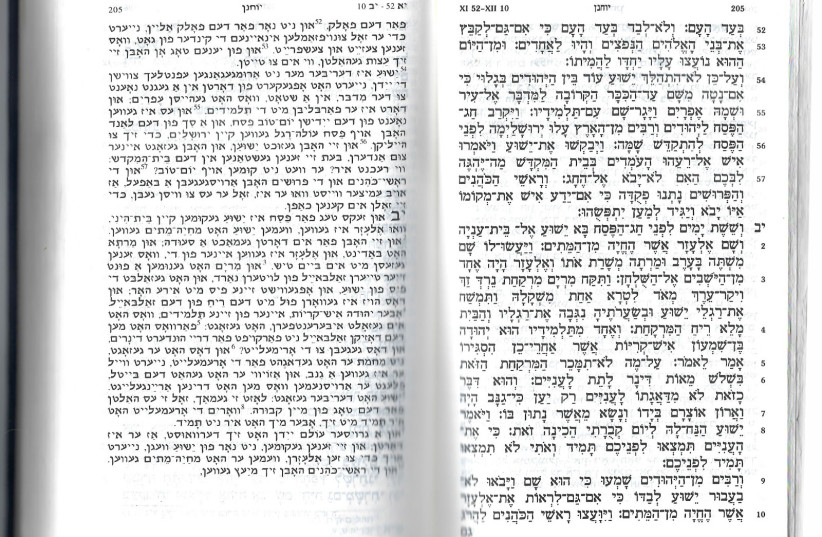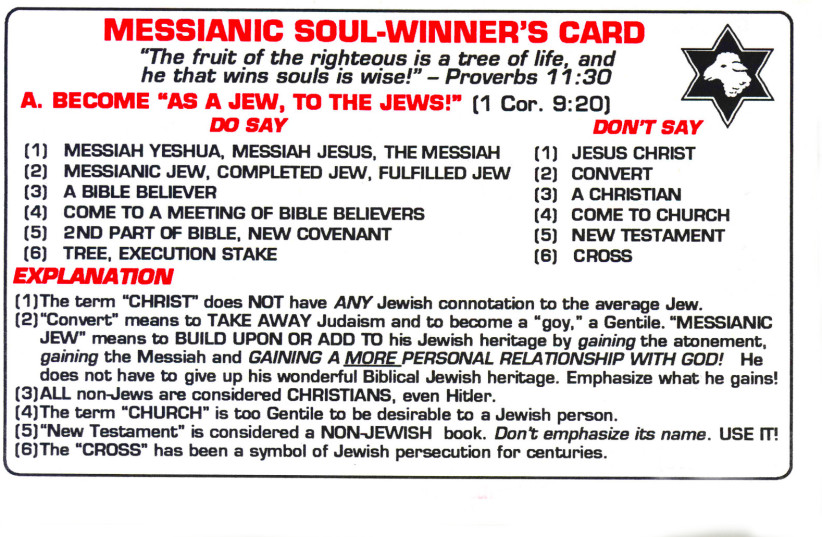Yiddish translations of the New Testament have been distributed in Jewish communities throughout Rockland County, New York, in what may be an attempt to evangelize ultra-Orthodox Jews.
The Bibles were mailed out to several communities in Rockland County, such as in Monsey and Spring Valley, which are known to have an extremely large ultra-Orthodox population.
Video of one such New Testament translation being delivered to a synagogue was shared online by the nonprofit Christian missionary watchdog Beyneynu, which reported claims that the package was deliberately marked “return to sender” with the address of the synagogue, to make sure it was opened.
Three phone numbers included inside the New Testament direct callers to Jews for Jesus missionaries. While their exact identity is unknown, the origin of the Yiddish New Testament translation isn’t.
The work originated back in 1941 when it was translated and published by Jew-turned-Lutheran Christian Henry Einspruch, born Chaim Yechiel Einspruch. It is still circulated today thanks to the organization he founded, the Lederer Foundation, now known as Messianic Jewish Publishers and Resources (MJP&R), which is based in Maryland and describes itself as a Messianic Jewish institution.
This is corroborated in the opening page of the translation, which credits Einspruch and writes that it was distributed with the permission of MJP&R.
Why are they doing this?
According to Rabbi Tovia Singer, director of Outreach Judaism and an expert on Christian missionaries in the Jewish world, the goal is to evangelize hassidic communities and spread the gospel with the end goal of converting them to Christianity.
“If you were a missionary and you wanted to convert Jews to Christianity, especially if you wanted to evangelize what is probably the second-most highly concentrated group of Yiddish-speakers outside of Israel, you’d do exactly what they are doing,” Singer explained.
“The people engaged in this process are determined to reach Jews with the gospel. They believe that for the second coming of Jesus, the Jews have to be converted.”
According to Singer, the distribution of the New Testament in Yiddish is especially sinister as it is a thorough way of infiltrating the gospel into tight-knit haredi Jewish communities.
“Yiddish is used as a barrier against assimilation,” Singer explained. “People move to Monsey because they want to insulate themselves from the outside world. But now, their precious language that used to insulate their community, which is 100% Orthodox, has been violated.”

THIS ISN’T happening just in Rockland County. These types of missionary efforts also happen in Brooklyn, Chicago and even Israel, the latter of which is where copies of the New Testament translated into both Yiddish and Hebrew are already being circulated.
Hundreds of different groups are involved in this effort, all with the same ideology, Singer explained, though two of the biggest ones are Global Gates and New Hope Ministries, which distributes free copies of the Yiddish and Hebrew New Testament translations.
These covert missionary efforts go far beyond simply distributing Yiddish versions of the New Testament. Christian missionaries often go undercover as religiously observant Jews in the haredi community in order to infiltrate and spread their gospel. This has been seen in many communities worldwide, from the US to Israel and beyond.
Guides and instructions have even been issued to some of these missionaries for how to best go about evangelizing these communities.
These guides, shared with The Jerusalem Post, include such instructions as not to say “Jesus Christ” but to instead say “the Messiah” or “Yeshua”; and to refer to the New Testament as the second part of the Bible and the cross as a tree.

Even more detailed training manuals exist that explain how to answer questions from Jews and how to explain greater spiritual aspects of Christianity.
“We have evidence that missionary organizations who financially support covert operations in religious communities actually finance Yiddish-language courses for missionaries prior to placing them in target neighborhoods,” Beyneynu said.
“It’s like a cancer,” Singer commented.
Greater attention has been brought to these efforts in recent years thanks to the efforts of Beyneynu and Outreach Judaism. However, missionary efforts haven’t stopped, and are still an ongoing issue they are trying to tackle.
“These aggressive campaigns targeting the Jewish people are offensive and show a clear disrespect and trampling of religious freedoms – namely, our right to be Jews and not be preyed upon,” Beyneynu said.
“In any other situation, the targeting of a certain ethnic group would not be tolerated,” the watchdog said. “The intentional targeting of Jewish people by Christians is offensive and has been going on for centuries. The church has long been making fantastic claims and leveling serious charges against the Jewish faith. [But] we are going to respond. The free speech of the Jewish people will no longer be stifled.”
According to MJP&R, the distribution of these texts was in no way deceptive or coercive and was not the work of undercover missionaries.
“When Einspruch translated the New Testament into Yiddish... his only desire was to introduce the many Jews escaping Germany in the 1930s and 1940s to the one he believed to be the Messiah... Yeshua from Nazareth,” MJP&R president Rabbi Barry Rubin told the Post in an email.
“The situation in Rockland County is similar yet different. Those who distributed the Yiddish New Testament are sincere Jews who, like Einspruch, desire that their fellow Jews meet the Messiah.”
Rubin explained that those who did so were not going undercover, something he said he does not in any way condone.
“I don’t think anyone missed who they were and what they wanted to accomplish,” he said, but added that they may have acted in an unusual manner in “their zeal to communicate.”
